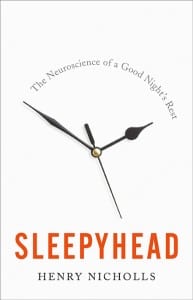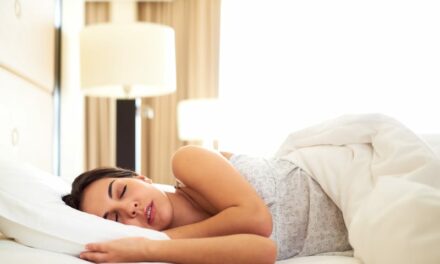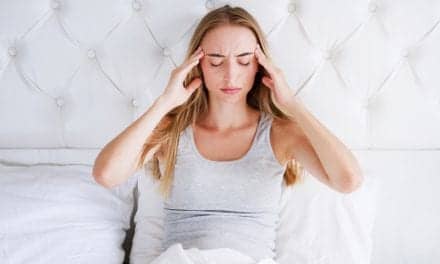A science writer with narcolepsy explains the impacts of sleep deprivation on brain performance.
The below is an adapted excerpt from Nicholls’s new book SLEEPYHEAD: The Neuroscience of a Good Night’s Rest and is reprinted with permission.
The most immediate, most obvious impact of sleep deprivation is on brain performance. ‘If a man is denied sleep so that the drain upon nerve cells continues beyond a certain point, he will, of course, be thrown into a condition of fatigue, when intellect and emotions must suffer,’ wrote Michael O’Shea in Aspects of Mental Economy in 1900.
In order to gauge the extent of this damage, psychologists will often deploy the psychomotor vigilance task. This requires a subject to strike a button every time they experience a stimulus, like the flash of light on a screen or a beep from a loudspeaker. The stimuli occur over and over but at random intervals over the course of a ten-minute test. Sleep deprivation seriously messes with the ability to carry out this task, slowing the reaction time and increasing the number of lapses. When someone doesn’t even respond to one of the flashes or beeps, it’s probably because they were so tired they lapsed into one of those microsleeps that are common for many people with narcolepsy.
Sleep deprivation and the frequent failures of consciousness that result are like taking a wrecking ball to memory. ‘One of the cruellest things about having narcolepsy since very early childhood is that I have few memories and the ones I have are actually “false memories”,’ says Lily Clarke. When she turned 40, her best friend gave her an album of photos from their youth. ‘I burst out crying and everyone thought I was being sentimental but I was inconsolable because I didn’t recognize any of the events.’
Most people with narcolepsy report something similar. ‘I have holes in my memory,’ says Pen Pearson. ‘It’s like going to open a drawer for something and when I open it the drawer is empty.’ For Trish Wood, her short-term memory is definitely affected. ‘Dates and names are a particular problem,’ she says. ‘I am constantly late for work because I have lost or forgotten things like keys, medication, handbag, purse and lunch. I lay everything out the night before but can still manage to lose my car keys in the short distance between my kitchen table and the front door.’
Although I am fortunate that I do not suffer from narcolepsy anywhere like as badly as this, I have still become acutely aware that my short-term memory isn’t as good as it should be. I have a pretty good recollection of my youth; the memories that were laid down in my pre-narcoleptic days are virtually untouched and readily accessible. I do remember lots of things from my life with narcolepsy but I have a nasty feeling that they are not nearly as sharp as they should be. In fact, it’s almost as if I am living in a spotlight focused on the present, my immediate past and future out there in the darkness. It takes a lot of effort to recall what I did last weekend or what I’ll be doing next weekend. In conversation, I will often struggle to find the right word, halting mid-sentence for too long. Occasionally, I will have absolutely no recollection of a conversation, an experience that is as alarming as it is embarrassing, and one I did not imagine I would have until I was considerably older than I am now. In my early 40s, I began to contemplate that these memory deficits might be a sign of early-onset dementia. The reality is they are much more likely to be down to deprivation of proper sleep.
Sleepiness affects working memory, the memory needed to process in real time, like when holding several numbers in your head. It is also important for the formation of more long-lasting memories. In simple terms, the brain transforms an experience into a memory in two discrete steps, encoding an event as a temporary memory and then consolidating it into long-term storage. In order to do this well, it is important to have good sleep both before and after an experience.
I go to a lunch party. If I have not slept well the night before, my brain will not be in optimal shape to encode the names and faces of the guests into my short-term memory. If things are really bad, I might slip into microsleeps too, failing to register meeting one or two people at all. Even if I have slept well the night before and bank plenty of information into my short-term memory, I can only store it away for the long term if the night after the event is also good.
The lapses in cognitive function and the microsleeps that result from poor sleep can obviously cause accidents. ‘You’ve got a cup of tea and it falls out of your hands and burns your legs,’ says Martin, recounting an everyday hazard of being permanently shattered. He’s honed a technique for drinking his tea safely when he’s tired, leaning on the kitchen table with his elbows, his hands around the cup. Then, if he falls asleep before he’s finished the mug, he won’t drop it.
When sleep-disordered or sleep-deprived people find themselves in positions of responsibility, the consequences can extend to others. Surgeons, for example, are likely to struggle more with an operation when they are sleep deprived. In one study, researchers used a virtual reality set-up to test the dexterity of trainee surgeons in different stages of sleep deprivation. Those who’d been awake all night made 20 per cent more errors and took 15 per cent longer to complete the screen-based operation than those who’d had a full night’s sleep.
The meltdown at the Three Mile Island nuclear plant in Pennsylvania in 1979 and the Chernobyl disaster in the Soviet Union in 1986 are always cited as accidents where sleep deprivation resulted in human error, though the evidence is circumstantial. In the case of the Space Shuttle Challenger accident in 1986, however, the presidential commission ruled that sleep loss and shift-working played a part.
As horrific as these large-scale tragedies might be, the devastation they cause is nothing compared to the far more mundane problem of drifting off at the wheel. It’s been estimated that staying awake for 24 hours results in an impaired cognitive state roughly equivalent to having a blood alcohol level of 0.1 per cent. In most countries, this exceeds the legal limit for driving.
Though it’s obvious that sleepy driving should increase the risk of an accident, it is far from easy to figure out just how common such events might actually be. Jim Horne, who until his retirement was head of the Loughborough Sleep Research Centre at Loughborough University in the UK, has spent more time than most thinking about the dangers of sleeping at the wheel. Some 20 years ago, he was approached by the Devon and Cornwall constabulary, then by other police forces around the United Kingdom, each of them giving him access to their records. His mission was to report back on just how common sleep-related accidents might be and whether there were any interesting patterns lurking in the data.
Working with his colleague Louise Reyner, Horne devised a way of homing in on crashes where sleep was the probable cause. As the dataset only involves those accidents reported to police, it can only give us a partial picture of the severity of this problem. But it does reveal some key, take-home messages about sleep-related road accidents.
Most strikingly perhaps is the straight-forward observation that these accidents are more likely to be fatal than other kinds of prang. ‘One of the cardinal signs of these collisions is there’s no sign of braking beforehand,’ says Horne. ‘We think there are more fatal accidents associated with falling asleep at the wheel than with alcohol.’
Over the course of a 24-hour period there are two clear spikes to the incidence of accidents where sleep was involved, one in the early morning and a second mid-afternoon. Horne puts the early-morning spike down to ‘a triple whammy’. If you are on the road before 6 a.m., it’s possible, even likely, that you haven’t had enough sleep. This is also the time of day when the body is at its circadian nadir, and all-round alertness is likely to be compromised. To make matters worse, the roads are dark and usually empty, so don’t have much to offer in the way of stimulation. ‘That’s why half the collisions on our motorways between 2 and 6 o’clock in the morning are sleep related,’ says Horne.
The second peak in sleep-related accidents is down to the circadian slump in the middle of the afternoon, but the roads are busy so it’s not as obvious as the first. ‘There’s a lot of stimulation going on and stimulation helps offset sleepiness.’
In terms of who is behind the wheel when these accidents occur, Horne identifies three groups that are at particular risk: men under the age of 30. ‘They drive faster, cut corners, show off a bit, seem to think they are invulnerable and are more likely to be driving in the early hours of the morning,’ he says; shift workers, particularly after the first night shift before their body clocks have adjusted to being awake at night; and those with undiagnosed obstructive sleep apnea.
There’s good evidence, for instance, that treatment with CPAP significantly reduces motor accidents. In a study that took place in Ontario, Canada, researchers found that before treatment, the rate of accidents for the obstructive sleep apnea patients was three times that of the general population. After treatment, the accident rate dropped to normal levels. Motorways are particularly dangerous. The unwavering, high-rev thrum of an engine and the sheer monotony of pummeling along in a straight line making sleep that much more likely. Owing to the fact that the opportunities to get off a motorway are limited, there will often be a period where a sleepy driver will have to push on for many miles in a suboptimal state, rolling down the windows, switching the air conditioning to freeze, shouting or singing along to a maxed-up radio.
Horne has looked into whether these countermeasures work, specifically cold air and the radio. ‘Cold air in your face can have an effect for a short while, maybe 15 minutes,’ says Horne. ‘It depends how sleepy you are.’ The radio, however, is ‘basically useless’.
‘As soon as you start doing things to keep yourself awake you know you are a danger to yourself and other people,’ he says. ‘You shouldn’t start thinking I’ll turn up the air conditioning and I can carry on driving for an hour or so.’ It’s time to get off the road at the next stop.
Horne’s work led the UK government to introduce signs on motorways around the country, stating the obvious but easily ignored mantra: ‘Tiredness kills. Take a break’. He has also carried out research on the most effective way to take that break, giving a group of graduate students either a strong coffee or a caffeine-free control and a nap of up to 15 minutes before testing their driving performance in a virtual test.
Buy a coffee, one containing a hefty amount of caffeine. ‘Drink the coffee and go straight back to your vehicle,’ he says. ‘As the caffeine takes around 20 minutes to kick in, here’s that window of opportunity to get your head down for a quick zizz. Even if it’s dozing it can be quite refreshing.’ The caffeine buzz and a short doze combine to provide a powerful pick-me-up.
Most people with a sleep disorder understand the dangers that sleeping at the wheel could pose to themselves, their passengers and other road users, and take it seriously. Some will not drive at all, but many – with the proper medication and management – can continue to do so safely. ‘I have never come across a case of someone with narcolepsy, diagnosed and treated, ever having a serious collision on the roads as a result of falling asleep at the wheel,’ says Horne. In fact, given the self-imposed rules that many people with sleep disorders have to safeguard against sleep while driving, it’s even possible that they are safer than many other road users, he says.
* * *
In the longer term, sleep deprivation can have serious consequences for the body. For over 20 years Francesco Cappuccio has worked as a consultant in cardiovascular medicine, flipping between academic research and clinical practice at the University of Warwick. Around 15 years ago, he began to ask questions about the long-term health consequences of insufficient sleep. He was specifically interested in those who huddle beneath the lower lip of the sleep duration bell curve, the one in eight people who get less than six hours sleep a night. Could routine short sleep be contributing to the obesity epidemic unfolding across the developed world? What about cardiovascular disease? Type 2 diabetes? Are those with short sleep more likely to experience an early death?
Cappuccio and his colleagues pooled data from 30 research papers linking sleep duration with obesity. ‘All the studies published at the time indicated a very significant association between the proportion of people that are obese and sleep duration,’ he says. But an association between these two variables falls well short of demonstrating a causal link. It is relatively easy to see how obesity, by increasing the fat laid down in the throat, could cause sleep apnea. Is it possible that it could also work the other way round, with short sleep somehow causing obesity? Cappuccio resolved to data mine his way to a conclusion.
The longitudinal study is of crucial importance, one in which data are repeatedly collected from the same individuals over the course of many years. This can help address the question of which came first, the short sleep or the obesity. A longitudinal study of young children in New Zealand was the first to indicate that it’s the short sleep that kicks things off. Cappuccio’s own data, as yet unpublished, shows much the same. ‘We are convinced that the exposure to short sleep precedes obesity,’ he says.
In the context of sleep apnea and narcolepsy, we have already seen how disrupting sleep can have unhealthy consequences for metabolism. Getting too little sleep does much the same, and possibly more. There is now compelling evidence that chronic sleep deprivation doesn’t just lead to obesity, it is also associated with a long list of other health complications, including an increased risk of type 2 diabetes, high blood pressure, structural damage to the blood vessels, stroke and coronary heart disease, to name just a few. People with habitually short sleep are also more likely to die early.
Adapted excerpt from Sleepyhead: The Neuroscience of a Good Night’s Rest by Henry Nicholls. Copyright 2018. Available from Basic Books, an imprint of Perseus Books, a subsidiary of Hachette Book Group, Inc.







